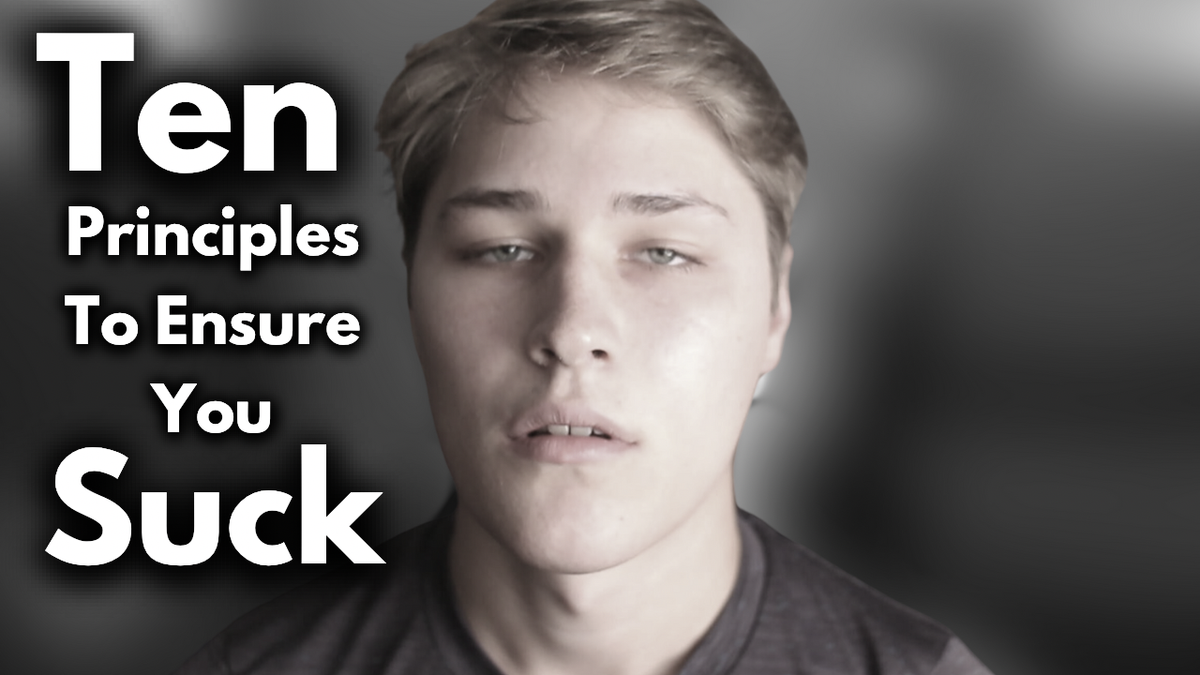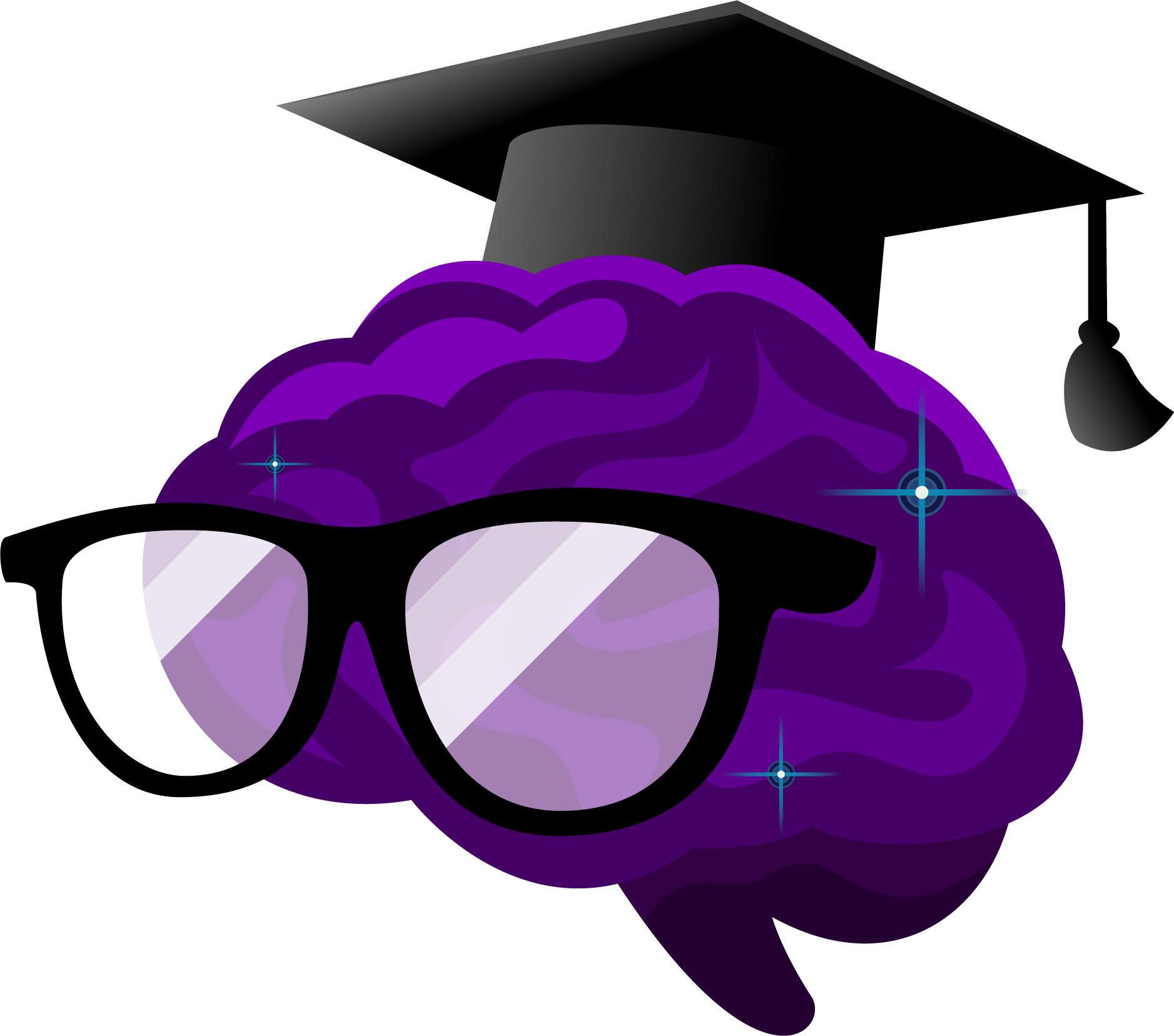AIP 85 How To Learn Anything Terribly

There's too much good advice on learning out there.
What we need is some tips on how to learn things terribly. So, I'm going to walk you through ten principles you can apply to your next learning endeavor to ensure it goes as horribly as possible.
Let's go!
1. Go In Without A Map
As the wise people say, failing to plan is planning to fail--which is exactly, what we want to do.
There are thousands of years worth of human knowledge we can leverage when entering a new learning endeavor. Books, courses, podcasts, and more.
Why use them?
You should create no plan whatsoever. Set no goals, define no gaps in your knowledge or skills, and explore no resources you could use to learn more effectively.
What's the fun of learning if you already know what will happen? Aren't you mature enough to decide what to do independently?
2. Separate The Learning From Its Intended Environment
The goal of excellent learning is to apply it to its intended environment of application and perhaps even other environments.
Why would we want that?!
The more abstract, unconnected, and unrelated your learning practice is from its intended environment of application, the better.
Playing soccer? Dribble through cones--made of spikes. Practicing a language--memorize vocabulary without ever reading, writing, or speaking in the language. Finally, go to school…
3. Don't Individualize The Learning To You
Every person has a different background, body, education, perspective, interests, genetics, and more, which changes how they should learn.
That's why you should try your best to make your learning as similar to others as possible. It's like using a spork to cook and eat your meals. Sure, it might be nicer to use the utensils made for the job and your culture, like forks, knives, spoons, or chopsticks, but then you run into that awkward situation where you have to think about what utensil people will want to use.
It's better just to homogenize everyone and stop worrying.
4. Suck All Emotion And Fun Out Of Your Learning
Emotion makes learning stick.
But we want them to slide right out of our brains like a kid on a slip-and-slide. So, suck all the emotion out of your learning. Make it as boring and abstract as you can. Learn predominantly through lectures if possible.
Go even further and take yourself as seriously as possible. Every practice session is do or die--you're an adult, not some child in a sand pit--and the very word "play" should give you physical revulsion.
5. Rely Solely On Motivation
Discipline, passion, and habits--they're endangered species when you're learning like you should.
Motivation is the name of the game. Learn only when you feel like it. Procrastination is on the menu for breakfast, lunch, and dinner, and if you really feel like it, and this is quite an accomplishment, and you should be really proud if you can do this, then you can have it as an afternoon snack too.
6. Don't Learn Alongside Others
It was Aristotle who said humans are social animals or something like that.
Well, it doesn't take a genius to realize when you're socializing, you ain't learning. They're two different words, for goodness sake! Feynman technique, observational learning, apprenticeships--that's what you do to learn when you have a social life--which obviously, we do not.
You should learn in a solitary cabin in the woods, with cigars and a glass of brandy in hand. Only when you feel you have become an expert in your area should you exit your secluded sanctuary and dispense your wisdom to the outside world. Learning should be like a fine wine—aged, undisturbed, and only eventually useful for pretentious conversations.
7. Don't Get Feedback
Negative feedback will make you feel bad. And positive feedback will make you complacent. So why get feedback at all?
The only way you can be "bad" at learning is if there is something you're measuring to be good or bad against. If you aren't measuring at all, we can just as well say you are doing great, which, if I do say myself, feels much better.
If you do get feedback, make sure it's far away from application, inaccurate, and unactionable as possible. Prioritize the "feed" part of feedback with you in taking feedback but never putting it back into your learning in any meaningful way.
8. Learn As Far Away From Application As Possible
Ideally, you should be learning years ahead of when you want to use your learnings if you use them at all.
Spend so much time-consuming information on or about what you're learning that you don't have time to put any of it to use. Embed yourself into the noise of the internet and make diving into rabbit holes your morning routine. This way, once you actually have to use what you have learned, you must learn again--more learning whoop whoop!
9. Go In With A Fixed Mindset
Fully believe your intelligence and skills are impossible to improve—remember, you peaked in kindergarten.
You were born this way and will die this way. Failure of any kind can't help you because all it does is expose your innate ability in a particular area. Stick to what you're good at, and leave the things in which you suck for those with better genetics.
10. Don't Allow Yourself To Get Into Flow
Most learners crave that magical flow state in which we become so absorbed in the present activity that we lose consciousness of the self and time flows by.
Learning becomes joyful, engaging, and fun. This state usually comes about when we attend to the present, have clarity over our goals, and stay in our Goldilocks zone by challenging ourselves just enough to be engaging but not so much we get frustrated.
That's the opposite of what we want. ”Flow state”, more like ”no-state.“ Learning should feel painful, boring, even, deadly at all times. You should riddle your environment with distractions to make it impossible to be present. You should have no idea what your goals are for any given learning session. And you should either make learning so impossibly difficult you can't do it or so incredibly easy it's more boring than your high school math classes.
BONUS: Don't Sign Up For My Gamification Resource List
And, of course, if you really want to destroy your hopes at every learning effectively, then you should not sign up for my free gamification resource list.
Here's what I would like to share this week.
📸News From The Channel!
📺Latest On De YouTube - Before You Learn, Don’t Start Learning: Discover the power of meta-learning with this insightful guide. Learn how to make the most of your learning endeavors by creating a Meta-Learning Ma with my custom made Q.U.E.S.T framework (Question Your Goal, Uncover Gaps, Explore Resources, Strategize Backwards, Tackle And Tweak). Perfect for lifelong learners, students, and anyone looking to improve their learning skills.
💡My Best Insights:
P.S. Some of the links below are Amazon affiliate links.
📺YouTube Video - How Psychedelics Work Making Sense Of Psychedelics: I’ve been researching more into psychedelics after doing mushrooms for the first time. I’m not going to released a published version of my reflections yet because there is still a lot of stigma around psychedelics but perhaps one day when they are less stigmatized I will. For those skeptical about psychedelics, I encourage you to open your mind to their potential for self-actuality and growth. This video dives deep into the positives of using them in this way.
